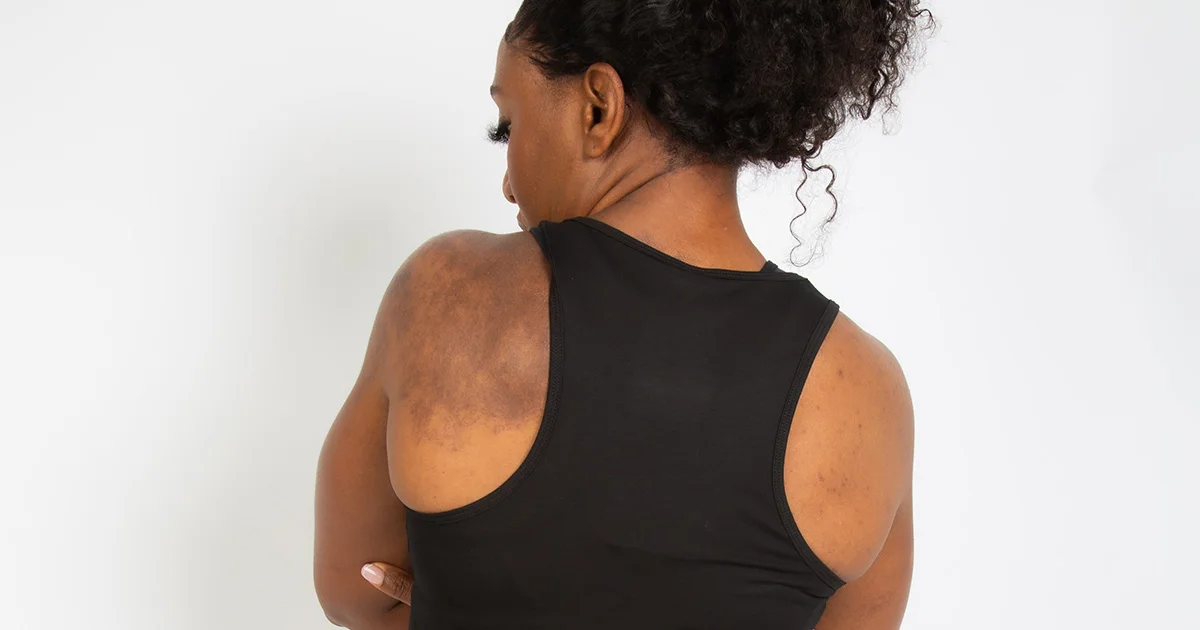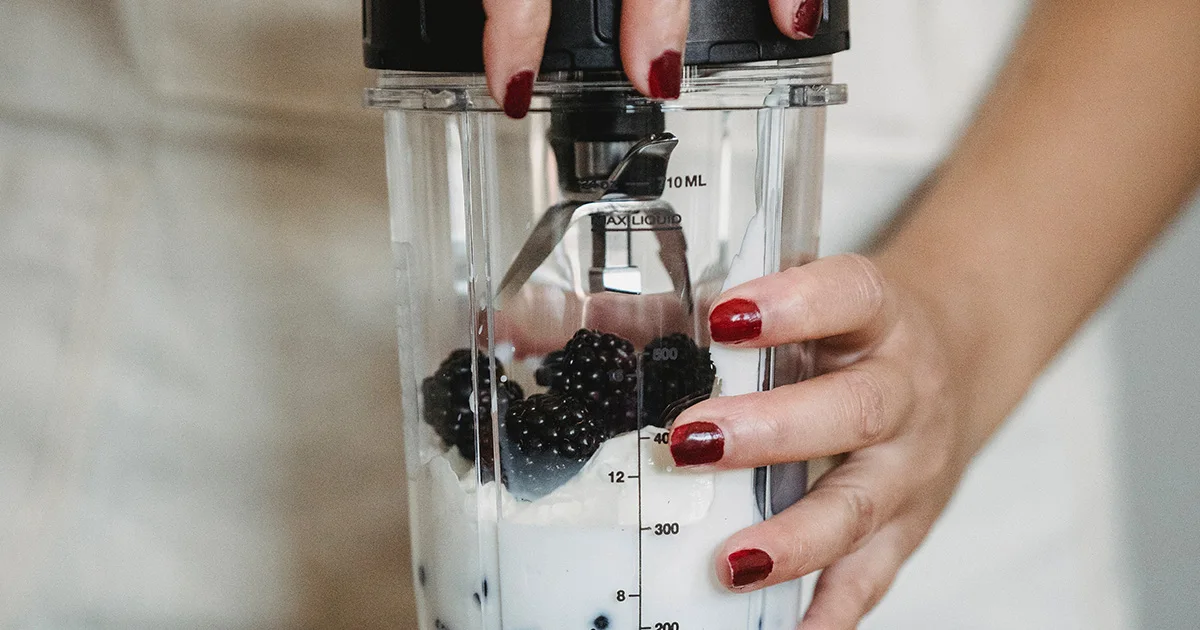Here's what we'll cover
Here's what we'll cover
If you are starting a weight loss journey, you probably have questions about fat loss vs. weight loss and which of the two to prioritize. While most people will focus on pounds lost, the key to maintaining a healthy weight is to focus on fat loss.
Reducing your body’s overall fat percentage and concentrating on increasing lean muscle mass can help you maintain a healthy weight. Higher ratios of body fat to lean muscle mass are also linked to health issues such as cardiovascular disease and other metabolic disorders (Chen, 2019).
Let’s take a deeper look at fat loss vs. weight loss, the benefits of losing body fat, and the best way to lose fat and gain muscle.
What is the difference between fat loss and weight loss?
You aren't just losing fat when you lose weight because of calorie reduction, exercise, or a combination of the two. You’ll lose a combination of fat, muscle tissue, and water. But not all weight loss is the same, and pursuing fast weight loss results isn’t usually the best strategy.
Crash diets—where you lose weight quickly through steeply cutting calories—often cause you to lose high amounts of water weight, fat, and muscle. Sounds good, right? The problem is that losing too much muscle mass can negatively impact your health, including fatigue, heightened risk of injury, and neurological issues. What’s more, muscle loss decreases your resting metabolic rate, which can make it difficult to lose weight or maintain your weight loss (Willoughby, 2018).
This is why experts agree that the healthiest weight loss program focuses on decreasing fat without losing too much lean muscle mass. In other words, when you measure your weight loss progress, you want to focus on your body fat percentage rather than the number on the scale.
How do you know if you’re losing body fat?
Weighing yourself on a traditional scale won’t tell you whether you’re losing fat, muscle, or water. There are some other ways you can find out how much body fat you have:
Consider using a body fat scale, which can tell you how much fat and lean muscle mass your body contains. At-home body mass scales may not be as accurate as body fat assessments at a healthcare facility, but they can give you a general idea of your body fat percentage (Frija-Masson, 2021).
Try a skinfold caliper, an instrument that essentially pinches specific areas of your skin and provides a body fat measurement. When used correctly, this method can fairly accurately measure body fat (Beam, 2010).
Taking a waist circumference measurement using a tape measure is considered a good tool for measuring body fat levels. Since higher levels of abdominal fat are linked to an increased risk of metabolic disease, knowing whether your waist circumference is in a healthy place can be helpful (Piqueras, 2021). According to the National Institute of Health, men should aim for a waist circumference of 40 inches, and women should aim for a waist circumference of 35 inches (NIH-a, n.d.).

How to encourage fat loss
Essentially, diets work by reducing calorie intake or encouraging caloric restriction. A 2018 study published in Nutrients found that the most popular diets—such as low-carb diets, the keto diet, and high-fiber diets—may cause weight and fat loss but can deplete too much healthy lean muscle mass. These diets were also more likely to produce short-term weight loss rather than longer-term results (Willoughby, 2018).
On the other hand, diets high in protein are more likely to help you maintain your healthy muscle mass and lose body fat. According to the International Society of Sports Nutrition, consuming at least 1.4–2 grams of protein per kilogram of body weight per day is a good way to help maintain your lean body mass while losing weight and burning fat (Jäger, 2017).
Still, following a high-protein diet may not be enough to encourage the right balance of fat and lean muscle mass. Experts suggest that the best way to reduce fat and maintain lean muscle mass is to do a combination of the following (Cava, 2017):
Eat a high-protein, nutrient-dense diet.
Reduce your calories.
Adopt an exercise program that combines cardio and strength training.
In addition to ensuring your protein intake is adequate, it’s best to maintain a diet low in sugar and simple carbohydrates, focusing on whole grains, fruits and vegetables, healthy fats, and lean proteins (CDC-a, 2022).
Losing weight only happens when your body goes into a caloric deficit, meaning that you eat fewer calories than you did before or you burn more calories through exercise than you take in through food. It’s never a good idea to reduce your calories drastically or to lose weight too quickly. The National Institute of Health recommends reducing your caloric intake by about 500–1000 calories and aiming to lose no more than 1–2 pounds a week (NIH-b, n.d.).
Exercise can help you lose weight, but it’s important to combine cardiovascular exercise and strength training to maintain lean muscle mass while losing weight. The CDC recommends 150 minutes of moderate exercise per week, or 75 minutes of vigorous exercise and at least two days of resistance training per week (CDC-b, 2022).
Benefits of building muscle
Building muscle as you lose fat can lead to a trimmer-looking physique and has several important health and wellness benefits.
Very often, people are told that they have overweight or obesity and have an increased propensity toward cardiovascular and metabolic disease. But BMI measurements don’t account for a person’s body composition and the ratio of fat to lean body mass (Chen, 2019). People with high levels of fat storage in the body are more likely to develop these diseases, with research pointing to excess fat in the stomach area as an increased risk (Piqueras, 2021).
Losing excess fat and gaining muscle are particularly important as we age because older adults are more likely to experience reduced muscle mass than younger adults. This can lead to decreased quality of life and a high risk of accidents, such as falls. For optimal health, experts encourage older adults to focus on high-protein diets and exercise routines that include strength training (Dhillon, 2017).
Building muscle protects against negative health outcomes and is essential to losing weight and maintaining weight. This is because increased muscle mass helps you burn calories even when you are at rest. This phenomenon is known as your “resting metabolic rate.” The more lean muscle mass you have, the higher your resting metabolic rate (Aristizabal, 2015).
What you need to know
Losing weight and improving your overall health is about more than just losing a certain number of pounds. It’s important to consider fat loss vs. weight loss and focus on reducing body fat and increasing lean muscle mass. The most effective way to do this is to eat a nutritious diet focusing on high protein, moderately reduce calories, and maintain an exercise program that emphasizes cardio and strength training.
DISCLAIMER
If you have any medical questions or concerns, please talk to your healthcare provider. The articles on Health Guide are underpinned by peer-reviewed research and information drawn from medical societies and governmental agencies. However, they are not a substitute for professional medical advice, diagnosis, or treatment.
Aristizabal, J. C., Freidenreich, D. J., Volk, B. M., et al. (2015). Effect of resistance training on resting metabolic rate and its estimation by a dual-energy X-ray absorptiometry metabolic map. European Journal of Clinical Nutrition, 2015 (69), 831-836. doi:10.1038/ejcn.2014.216. Retrieved from https://pubmed.ncbi.nlm.nih.gov/25293431/
Beam, J. R. & Szymanski, D. J. (2010). Validity of 2 skinfold calipers in estimating percent body fat of college-aged men and women. Journal of Strength and Conditioning Research, 2010 (24), 3448-3456. doi:10.1519/JSC.0b013e3181bde1fe. Retrieved from https://pubmed.ncbi.nlm.nih.gov/20040894/
Cava, E., Yeat, N. C., & Mittendorfer, B. (2017). Preserving healthy muscle during weight loss. Advances in Nutrition, 2017 (8), 511-519. doi:10.3945/an.116.014506. Retrieved from https://www.ncbi.nlm.nih.gov/pmc/articles/PMC5421125/
Centers for Disease Control and Prevention (CDC-a). (2022). Healthy eating for a healthy weight. Retrieved from https://www.cdc.gov/healthy-weight-growth/healthy-eating/?CDC_AAref_Val=https://www.cdc.gov/healthyweight/healthy_eating/index.html
Centers for Disease Control and Prevention (CDC-b). (2022). How much physical activity do adults need? Retrieved from https://www.cdc.gov/physicalactivity/basics/adults/index.htm
Chen, Y. Y., Fang, W. H., Wang, C. C., et al. (2019). Fat-to-muscle ratio is a useful index for cardiometabolic risks: A population-based observational study. PLoS One, 2019 (14), e0214994. doi:10.1371/journal.pone.0214994. Retrieved from https://www.ncbi.nlm.nih.gov/pmc/articles/PMC6456204/
Dhillon, R. J. & Hasni, S. (2017). Pathogenesis and management of sarcopenia. Clinics in Geriatric Medicine, 2017 (33), 17-26. doi:10.1016/j.cger.2016.08.002. Retrieved from https://www.ncbi.nlm.nih.gov/pmc/articles/PMC5127276/
Frija-Masson, J., Mullaert, J., Vidal-Petiot, E., et al. (2021). Accuracy of smart scales on weight and body composition: observational study. JMIR mHealth and uHealth, 2021 (30), e22487. doi:10.2196/22487. Retrieved from https://www.ncbi.nlm.nih.gov/pmc/articles/PMC8122302/
Jäger, R., Kerksick, C. M., Campbell, B. I., et al. (2017). International Society of Sports Nutrition Position stand: protein and exercise. Journal of the International Society of Sports Nutrition, 2017 (14). doi:10.1186/s12970-017-0177-8. Retrieved from https://pubmed.ncbi.nlm.nih.gov/28642676/
National Institute of Health (NIH-a). (n.d.). Assessing your weight and health risk. Retrieved from https://www.nhlbi.nih.gov/health/educational/lose_wt/risk.htm
National Institute of Health (NIH-b). (n.d.). Key recommendations. Retrieved from https://www.nhlbi.nih.gov/health/educational/lose_wt/recommen.htm
Piqueras, P., Ballester, A., Durá-Gil, J. V., et al. (2021). Anthropometric indicators as a tool for diagnosis of Obesity and Other Health Risk Factors: A Literature Review. Frontiers in Psychology, 2021 (12), 631179. doi:10.3389/fpsyg.2021.631179. Retrieved from https://www.ncbi.nlm.nih.gov/pmc/articles/PMC8299753/
Willoughby, D., Hewlings, S., & Kalman, D. (2018). Body composition changes in weight loss: strategies and supplementation for maintaining lean body mass, a brief review. Nutrients, 2018 (10), 1876. doi:10.3390/nu10121876. Retrieved from https://www.ncbi.nlm.nih.gov/pmc/articles/PMC6315740/
Zeng, Q., Dong, S. Y., Sun, X. N., et al. (2012). Percent body fat is a better predictor of cardiovascular risk factors than body mass index. Brazilian Journal of Medical and Biological Research, 2012 (45), 591-600. doi:10.1590/s0100-879x2012007500059. Retrieved from https://www.ncbi.nlm.nih.gov/pmc/articles/PMC3854278/










